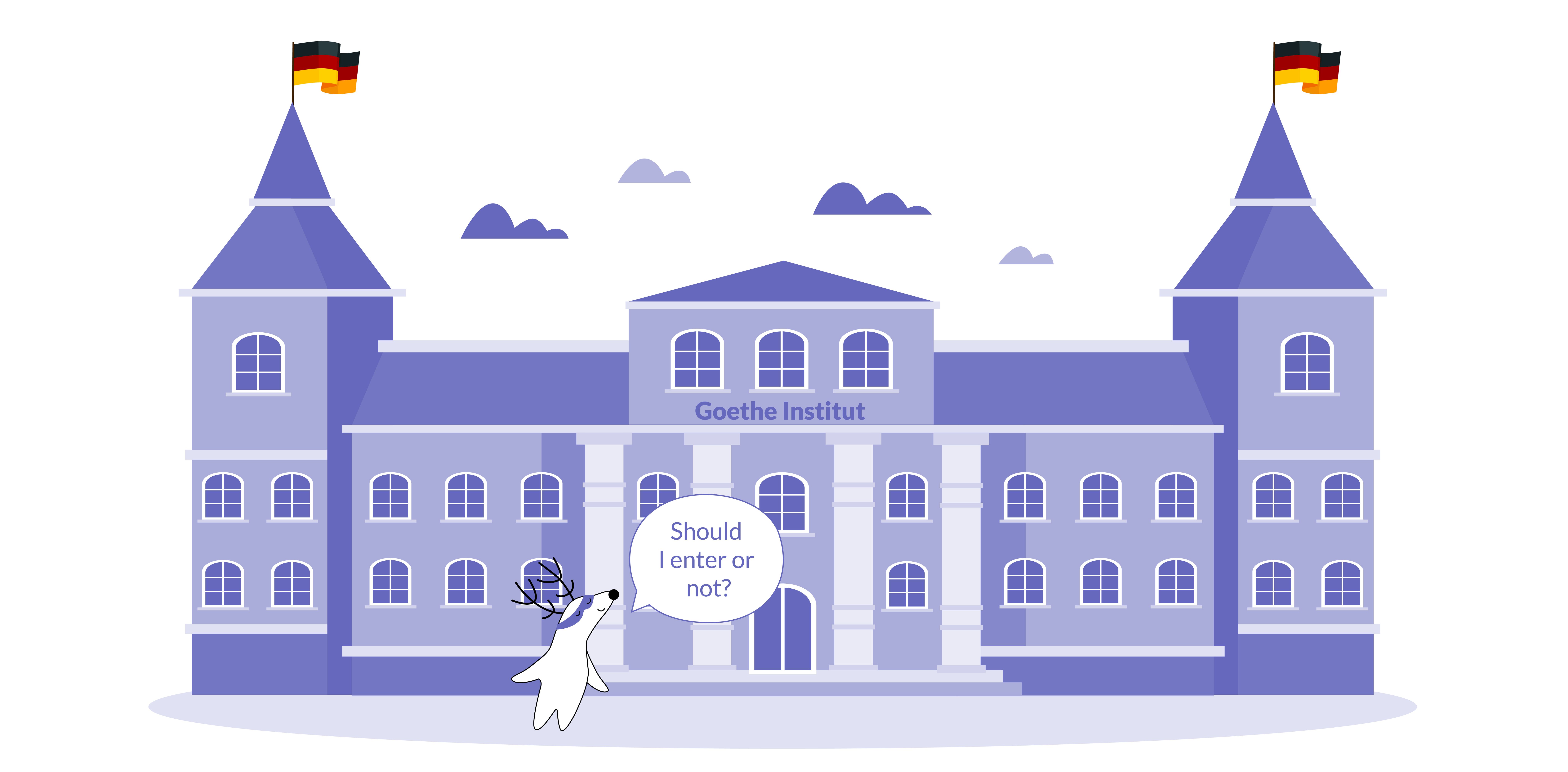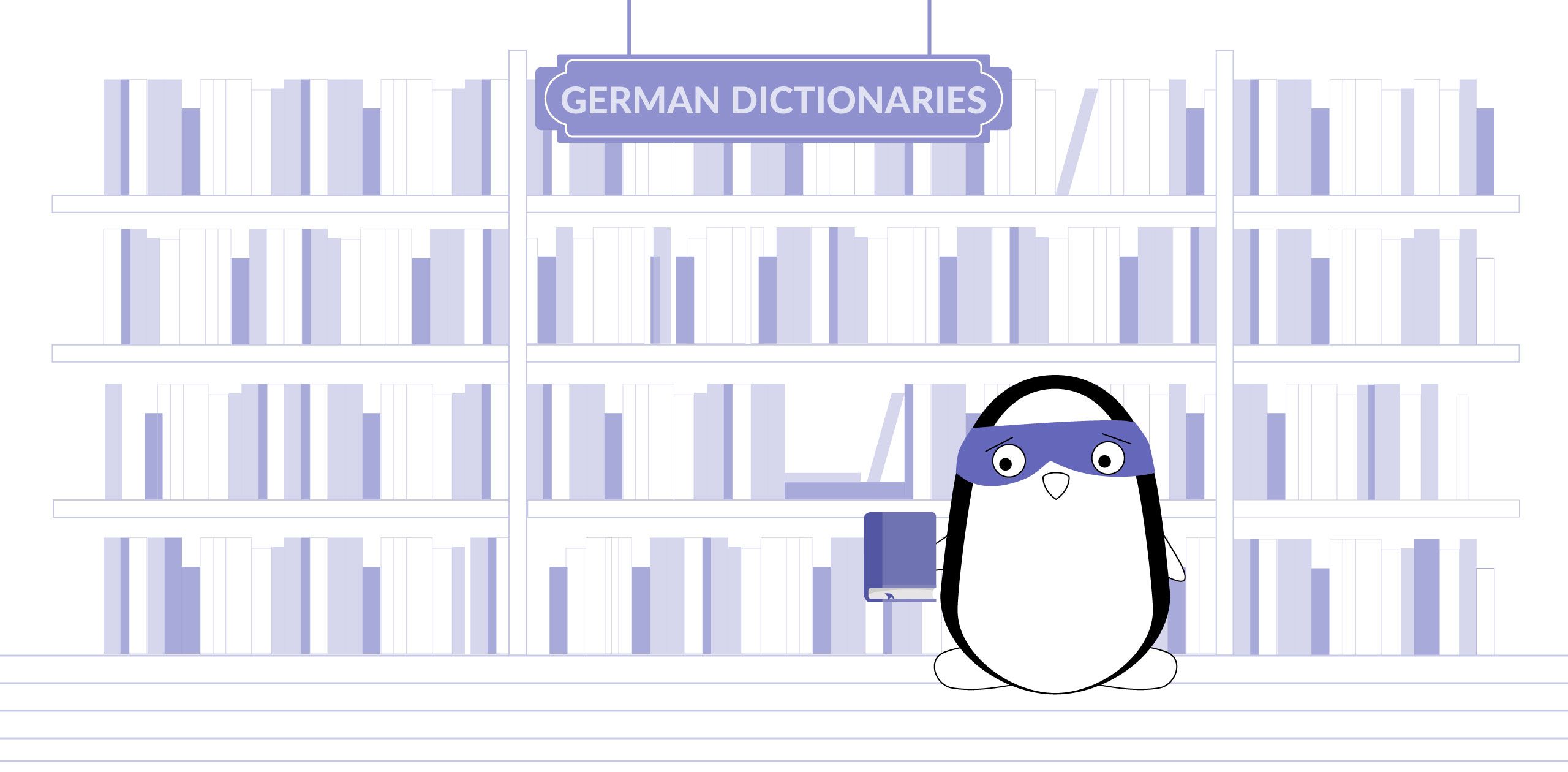
Anyone looking to learn a new language will tell you that German is one of the more challenging languages to tackle. The grammar is complex, and the pronunciation can be difficult for English speakers. Nevertheless, many people still attempt to learn it – and make great progress. So, don’t get discouraged, and trust us: you, too, can learn to speak German fluently.
With the right attitude and approach, it’s not only possible to learn German, but also to make sure your language-learning process is as comfortable as possible. But, to do so, you need to start the right way.
In this article, we’ll help you figure out what you need to know before starting, how best to learn, and where you can go from here. Read on.
Learn German with Langster
Determine Your Goals
It’s important to set goals and priorities when starting to learn German. Without a specific focus, it can be difficult to stay motivated and on track. So, what should you keep in mind when determining your goals?
- Think about what you want to use German for. Do you need it for work or travel? Or do you simply want to learn the language for fun? Once you know your purpose, it becomes easier to focus your learning and find the right resources.
- Another important factor is your level of German. If you’re a complete beginner, it’s best to start with an introductory course or program, even if you would prefer more intensive classes. If you have some experience with the language, you may want to consider classes created for specific purposes (such as business German) or lessons run in German by native speakers.
- Whatever your goals and priorities, make sure they are realistic and achievable. Learning a new language takes time and effort, so don’t expect to become fluent overnight. Dreaming big is good to keep you motivated, but if you want to stay productive, it's best to divide your goal into smaller tasks.
For example, you can set a goal of reading a book in German or having a basic conversation with a native German speaker – and then, after you achieve those, move to more level-appropriate aims. If you’re patient and keep working at it, you will see progress.
Find the Right Method
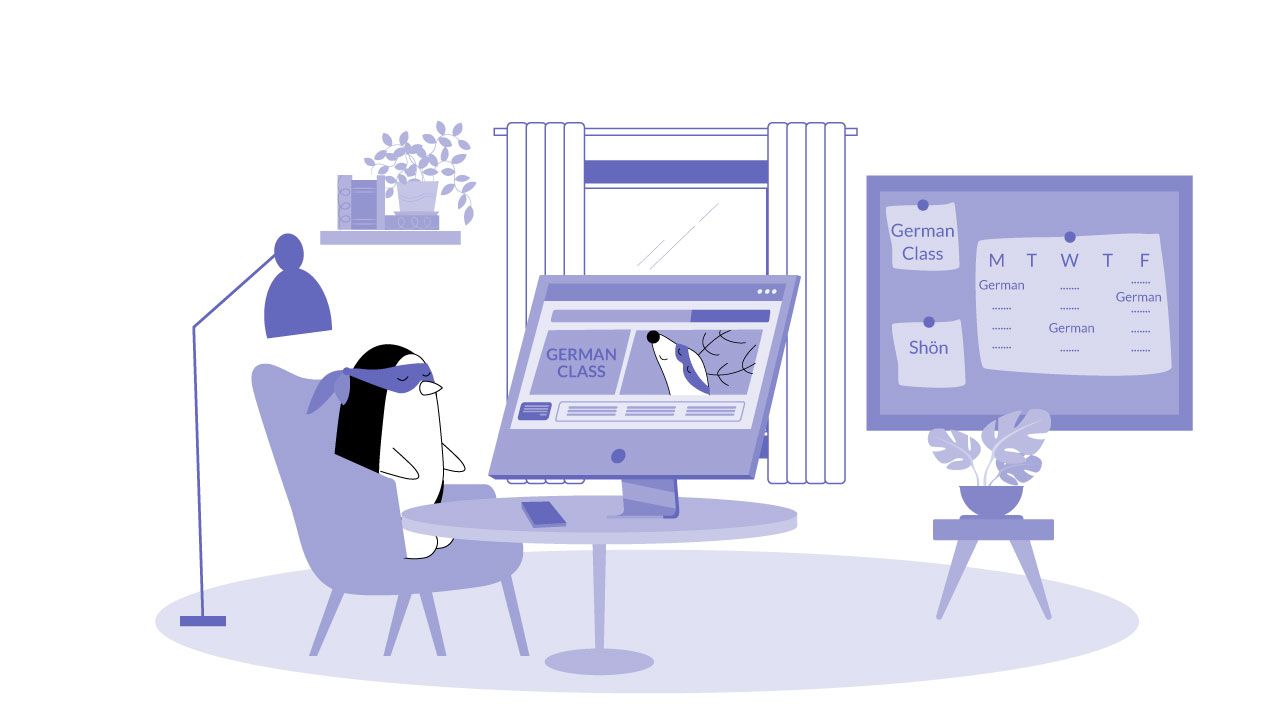
The next step is finding the learning method that works best for you. With the vast array of programs and resources available today, this can be tricky – but luckily, we’re here to help.
The key is to find one that fits your needs and interests. Based on the purposes you’ve determined previously, write a list of what exactly you need to learn in order to achieve your goals.
If you want to focus on German grammar, there are platforms specifically designed for that. Or, if you prefer more conversation-based learning, you can find private classes or language exchange groups to practice your German skills.
There are also games that can help with German vocabulary building, as well as apps meant to boost your reading comprehension skills, such as Langster. And, of course, there are a whole bunch of German lessons available offline and online meant for different levels and purposes.
Online or Offline?
This is one of the first questions people ask when they start looking for resources: should I learn German online or take classes offline? The answer, as with most things in life, is – it depends.
There are pros and cons to both methods. For example, online learning can be more flexible, since you can study whenever and wherever you want. You also have a larger pool of resources to choose from. And, generally, it’s much easier to find an online class that suits your needs – such as basic German lessons – than finding the same class in your local area.
At the same time, some people prefer the structure and discipline that comes with offline classes. Moreover, seeing a teacher and other students face to face may help you stay more active during the lesson.
The best way to figure out what works better for you is to try both methods and see which suits you better. And, don’t forget that it’s perfectly fine to use a combination of both offline and online resources to get the best results.
The Key Is to Mix and Match
Now, when it comes to combining stuff, we shouldn't forget about mixing different learning methods. While there are people who find it perfectly suitable to only go to German classes, for example, others can get easily bored with such an approach. In that case, you might want to look for other ways to boost your skills – and practice not only with a teacher, but also by yourself.
The options for mix-and-matching are endless – and the key is to find an approach that works best for you. If you have in-person German lessons at school, you might also want to download an app or play some helpful language-learning games.
Or, for example, if you're learning with free materials online, consider attending a language exchange group to practice your skills with other people. If one method doesn't seem to be giving you the results you want, feel free to experiment until you find something that suits your needs.
And, lastly, remember that learning should be fun. So, don't hesitate to add some German movies, TV shows, songs, books, and comics to your study routine. After all, they are the best way not only to improve your skills but to get immersed in the language and culture.
Make a Plan
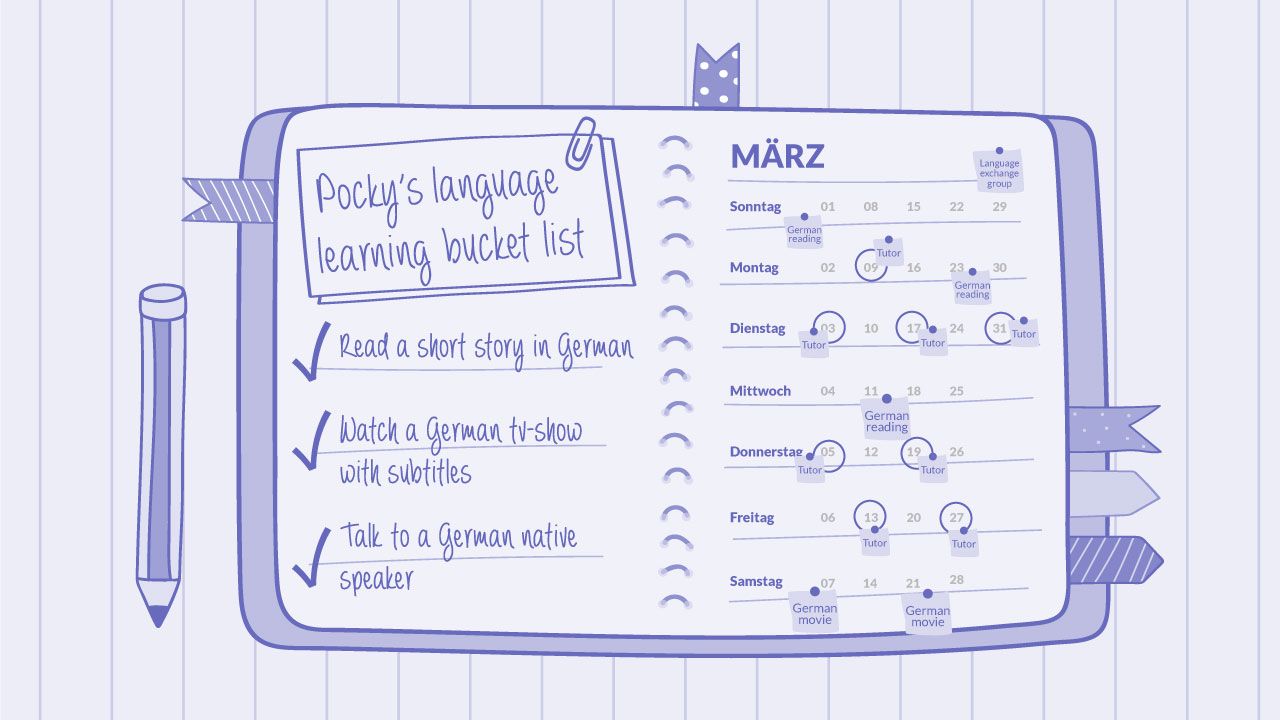
Now, when you know what you want and which methods you'll use to achieve that, it's time to make a plan. Don't skip this step: a well-thought-out plan will help you stay on track and achieve your goals faster.
Start with writing down the goal or goals that you've already determined. Really ask yourself: what do you want to achieve? Do you want to be able to hold a conversation in German? Be able to read books in German? Watch German movies without subtitles? This will help you determine what you need to focus on.
Then, make a list of all the things you need to learn to achieve your goal. This can include grammar rules, vocabulary, different verb tenses, and so on. If you're a beginner, you can start by learning all the basics necessary for completing the A1 language level. Check the list of skills necessary for that online, or simply attend an A1 language class to avoid confusion.
Once you have your list, break it down into smaller actions you can do. For example, aim to learn five new words every day, study grammar for 30 minutes three times a week, or go to a language class twice a week.
Finally, put everything together into a schedule, and stick to it. Dedicate some time every day or every week to learning German. It’s also a good idea to set some milestones – for example, aim to have a conversation in German after two months of studying. This will help you track your progress and stay motivated.
Tips for the Best Result
Even if you've followed all the steps described above, there are still a few things that can help you get the best result without straining yourself too much.
Here are some practical tips:
Use Reliable Materials
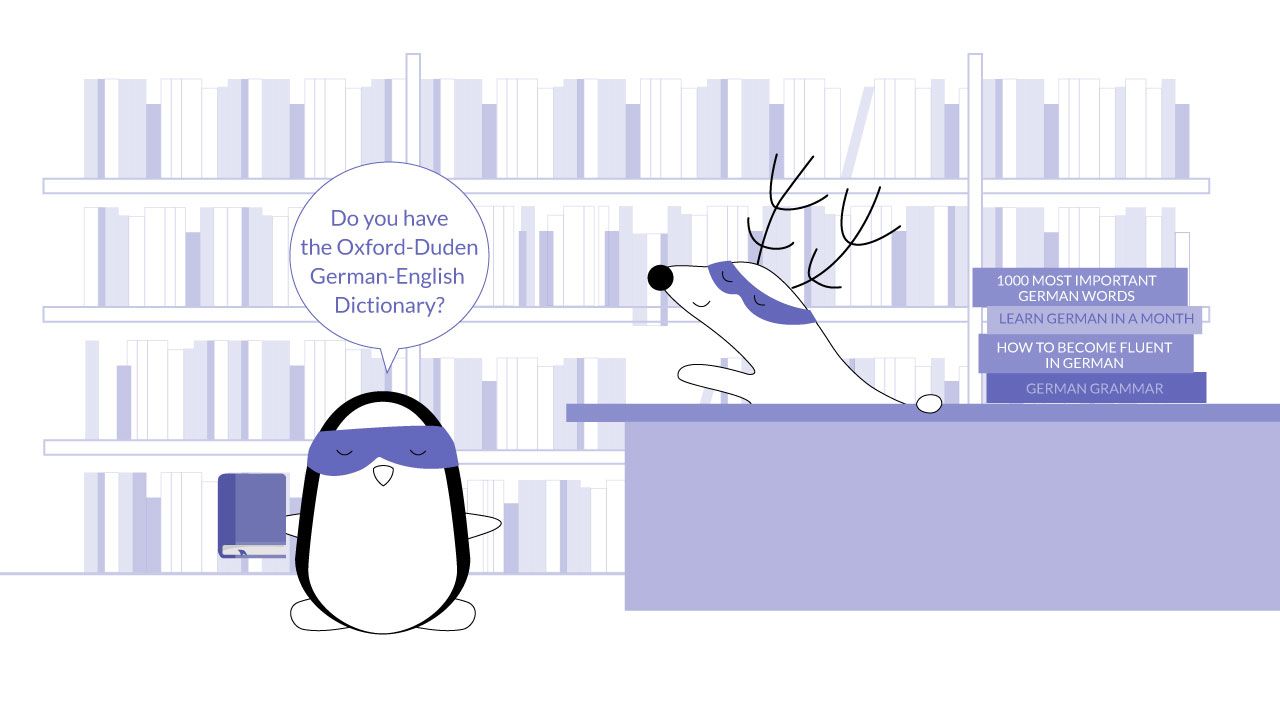
When it comes to learning a new language, it's important to choose reliable materials that will help you make the most progress. This means using resources that have been created by experts, such as textbooks, apps, or online courses.
It's also important to make sure that the materials you're using are up-to-date. Learning a language can be a challenging task, so you don't want to add any extra frustration by using materials that are outdated or incorrect.
How can you find reliable materials? One way is to ask your language teacher for recommendations. They will surely know of a great textbook or app that they've used themselves and found helpful.
Another option is to do some research online. There are many websites that offer reviews of different language-learning resources. This can be a great way to get an overview of what's available and decide which resources are right for you.
Finally, you can also check with your local library or bookstore. They might have a selection of language-learning materials that you can borrow or buy.
Whatever route you take, make sure to read the reviews and check the dates of publication before making your final decision. With careful research, you're sure to find the perfect materials to help you learn German quickly and effectively.
Try Language Immersion
One of the best ways to learn a new language is to immerse yourself in it as much as possible. This means surrounding yourself with the language as much as you can, both inside and outside of your studies.
One way to do this is to find German-speaking friends or colleagues. You can also join a German club or meetup group, attend events at a local German cultural center, as well as look for conversations with native German speakers online.
Another great way to immerse yourself in the language is to watch German movies and TV shows, listen to German radio, or read German books and magazines. This will gradually boost your vocabulary and help you learn not only some basic German phrases but also master the most-used German grammar rules.
Finally, one of the best ways to immerse yourself in German is to travel to a German-speaking country. This can be a great opportunity to practice your language skills in a real-life setting and experience the culture firsthand.
Practice Regularly
One of the most important things to remember when learning German is to practice regularly. This will not only help you master the language more quickly, but also keep your skills from deteriorating over time and boost your memory.
But, how often should you practice? It's generally recommended that you study for at least 30 minutes every day. However, if you can't commit to this, try to at least study for a few hours every week. And, if you want to see some very quick progress, aim to practice for an hour or more every day.
Don’t Be Afraid to Make Mistakes
Making mistakes is a natural part of learning any new language. And, when it comes to German, there's no need to be perfect. It’s impossible to avoid mistakes even on higher levels of language learning. Moreover, making mistakes is often the best way to learn and remember new vocabulary and grammar rules – so, don’t be afraid of them.
Of course, this doesn't mean that you should go out of your way to make mistakes. But, if you do make one, don't worry too much about it. Learn from it, and keep practicing. You'll be speaking German fluently in no time.
The German Language Doesn’t Have to Be Hard

Learning German doesn't have to be as hard as it's often presented. With the right materials and approach, you can easily learn the language in a fun and effective way. Just remember to start with the basics, immerse yourself in the language as much as possible, and practice regularly.
Of course, don’t forget that language learning should be interesting, not boring. If something doesn’t feel right, don’t hesitate to try a new method or move on to another topic for a while. Stay interested, stay motivated, and you'll be speaking German like a native in no time.








